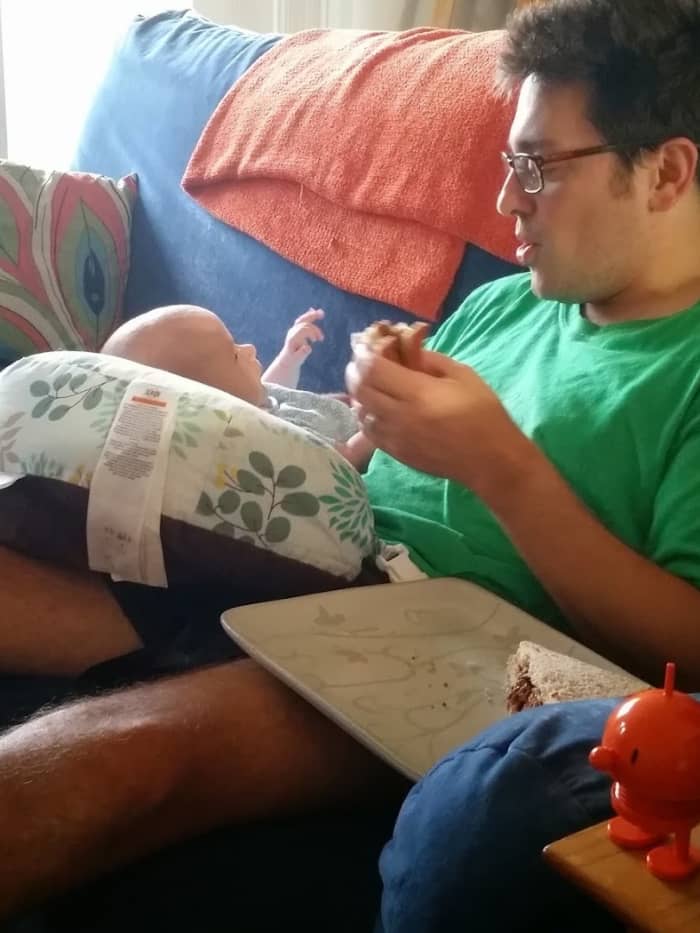This post was originally published on this site
Secretary of Transportation Pete Buttigieg is facing criticism over his decision to take paternity leave while the country faces major supply-chain issues. But the controversy is also prompting renewed discussion among parents, childcare experts and others about the need for men to have time off following the birth of a child.
Buttigieg, a former presidential candidate and former mayor of South Bend, Ind., and his husband, Chasten, recently became parents of twins through adoption. In an early September tweet, Buttigieg introduced the couple’s infant twins, saying, “We are delighted to welcome Penelope Rose and Joseph August Buttigieg to our family.”
Buttigieg was mostly “offline” from work during the first four weeks of parenting, according to a spokesperson from the Department of Transportation, as reported in Politico. That prompted charges the transportation secretary was neglecting his duties during a key time.
Among the most vocal critics was Fox News host Tucker Carlson, who said on his program: “Pete Buttigieg has been on leave from his job since August after adopting a child. Paternity leave, they call it. Trying to figure out how to breastfeed, no word on how that went.”
Some critics have accused Carlson of being insensitive and homophobic. But perhaps of equal note are the questions being raised about paternity leave and whether its value and importance is misunderstood by society.
In recent years, more companies have offered paid leave to both women and men following the birth or adoption of a child. One survey, from the Society for Human Resource Management (SHRM) and Oxford Economics, found that 55% of employers provide maternity leave and 45% provide paternity leave. Some states have even mandated such leaves.
Advocates say these leaves ensure that employees are in better shape, physically and mentally, when they return to work and are thus more capable of doing a good job. But they also say that offering these leaves doesn’t necessarily have to affect a company’s bottom line. If anything, they argue that they can serve as an inducement to attract and retain talented workers.
Still, many men and parenting advocates say there is a stigma attached to paternity leave, rooted in the traditional idea that child-raising is a woman’s job and that men must continue to work and provide for their families. That may explain why men hesitate to take extended leaves: A United State Department of Labor report found that 70% of men take off 10 days or fewer in connection with the birth or adoption of a child.
The situation is unsettling to men like Marley Jay, a Brooklyn, N.Y., father of two sons. He took time off after the birth of both of his boys — in the case of his younger son, an eight-week paid leave that Jay much appreciated.
“It’s a toxic masculinity thing,” he said of the backlash to paternity leave. “It’s sad that people can’t conceive why people would want to spend time with their newborn children.”

Tim Anderson says the paternity time he took off to be with his child proved invaluable.
Courtesy Tim Anderson
Similarly, Tim Anderson, an Austin, Texas, father, said he was grateful even for the two-week paid leave he got after the birth of his son seven years ago. For him, the leave was especially critical because he had to tend to his wife, who was recovering from an emergency C-section.
But Anderson also said the bonding time with his child proved invaluable. “I did feel more connected (to him). I wasn’t just this person coming home at the end of the day,” he said.
Some men, however, are responding to the issue by not only asserting the need for paternity leaves, but also fighting for the legal right to take them. Derek Rotondo sued his employer, JPMorgan Chase, for its alleged refusal to grant a 16-week leave. The case resulted in a $5 million class-action settlement.
To be sure, many women also note that the need for paid maternity leave is not recognized by society either. They speak to the fact such leaves are often falsely seen as some kind of “vacation” rather than a critical time to tend to and bond with a newborn.
“I can’t imagine anyone thinking this is a vacation,” said Emily M. Dickens, chief of staff and head of government affairs for the Society for Human Resource Management.
Dickens also balked at the idea that even a top government official like Buttigieg can’t take some time off for a newborn.
“No one is not replaceable…Federal employees are talented and trained to step in” during such situations, she said.

